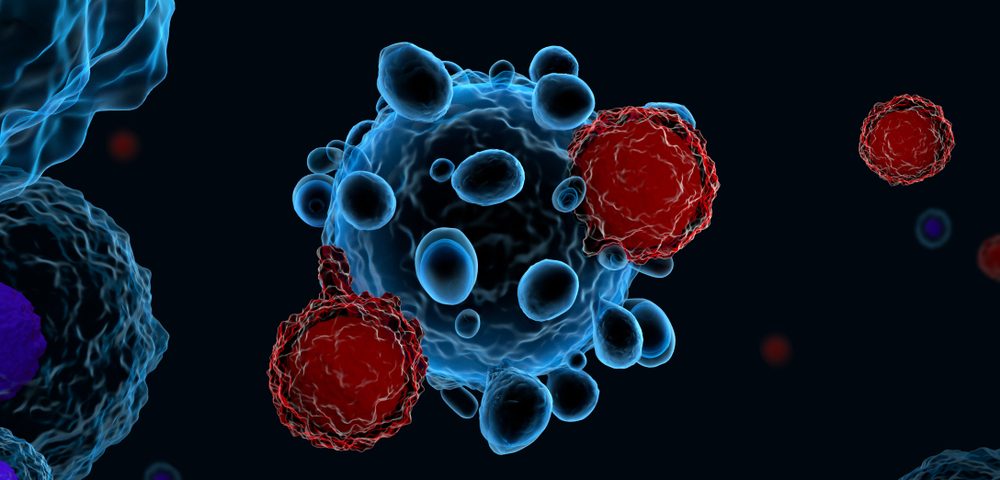Aeterna Buys Promising Targeted Immunosuppressive Therapy Platform

Aeterna Zentaris GmbH has acquired exclusive global rights to develop, manufacture, and commercialize highly-specific, autoimmune modifying proteins for the treatment of neuromyelitis optica spectrum disorder (NMOSD).
The company, a subsidiary of Aeterna Zentaris, reached an agreement with Julius-Maximilians-University Wuerzburg (JMU), in Germany, which developed the technology, called AIM Biologicals. It will use the new technology to develop therapies with the potential to suppress the abnormal immune reactions that drive NMOSD, without promoting overall immune suppression.
“The work that Dr. Valentin Bruttel and Prof. Joerg Wischhusen have conducted at the University represents what we believe to be a compelling opportunity for innovative development in the high-value indication NMOSD, an orphan indication with significant unmet need,” Klaus Paulini, PhD, president and CEO of Aeterna’s parent company, said in a press release.
Wischhusen, PhD, professor at JMU involved in the development of the technology, said: “Based on preclinical data obtained by the University to date, the AIM Biologicals technology has the potential to be a breakthrough in the treatment of autoimmune-related diseases,” including NMOSD.
“We believe that the collaboration with Aeterna will accelerate the further development towards the clinic,” he added.
NMOSD is an autoimmune disease in which the immune system mistakenly attacks and produces antibodies against proteins in the central nervous system (the brain and spinal cord). While its underlying cause remains unclear, about 70% of patients have high levels of an antibody against aquaporin-4 (AQP4), a protein that carries water across the membranes of nerve cell-supporting cells.
Antibodies against myelin oligodendrocyte glycoprotein, a protein present in the fatty protective sheath that cover nerve fibers, have been detected in some NMOSD patients.
The main goal in treatment development for NMOSD and other autoimmune conditions is specifically to suppress the abnormal immune reactions that cause the diseases, without promoting overall immune suppression.
However, this has proven challenging. Current NMOSD therapies promote, in one way or another, a general suppression of part of the immune system or of its key players, potentially impairing immune responses against real threats and increasing the risk of infections.
The AIM Biologicals technology has the potential to revolutionize NMOSD treatment by re-educating regulatory T-cells (Tregs) — a type of immune cell that typically dampens immune and inflammatory responses — to tolerate abnormally attacked proteins in NMOSD and suppress immune reactions against them.
The technology is based “on a mechanism developed by nature” to protect a fetus from the mother’s immune system “without compromising immune protection against foreign [molecules and microbes],” Wischhusen said.
AIM Biologicals are designed based on HLA-G, which are specific, soluble proteins involved in this feto-maternal immune tolerance mechanism. When bound to an antigen — fragments of molecules recognized by immune cells — these proteins can selectively and efficiently promote tolerance to that antigen.
Preclinical studies at JMU showed that this tolerance is achieved through the selective elimination of immune cells driving the abnormal, antigen-specific immune reactions and the development of Tregs that dampen such antigen-specific responses.
As such, designing immunoregulatory HLA-G proteins bound to antigens wrongly targeted in autoimmune diseases has the potential to create highly-specific, effective therapeutic approaches for such diseases, without suppressing the immune system.
In collaboration with JMU and its clinic, Aeterna will conduct further preclinical research to design and characterize an HLA-G protein bound to a specific AQP4 antigen that selectively promotes immune tolerance to AQP4 in the central nervous system.
The company also plans to meet with regulatory authorities to confirm any further preclinical data required to advance such a potential therapeutic candidate into human clinical trials.
While Aeterna has been focused so far on the development of therapies for rare endocrine diseases (those related to hormonal problems), this licensing agreement “demonstrates Aeterna’s commitment to execute on our stated plans of expanding our pipeline to have multiple assets in research and development,” Paulini said.






